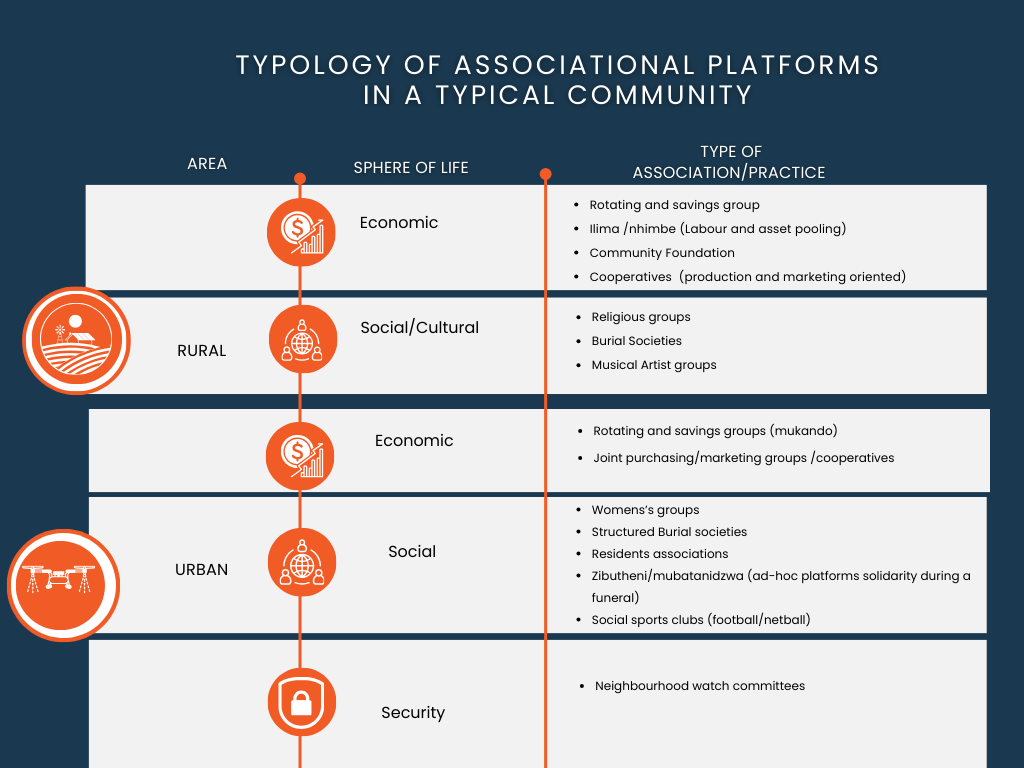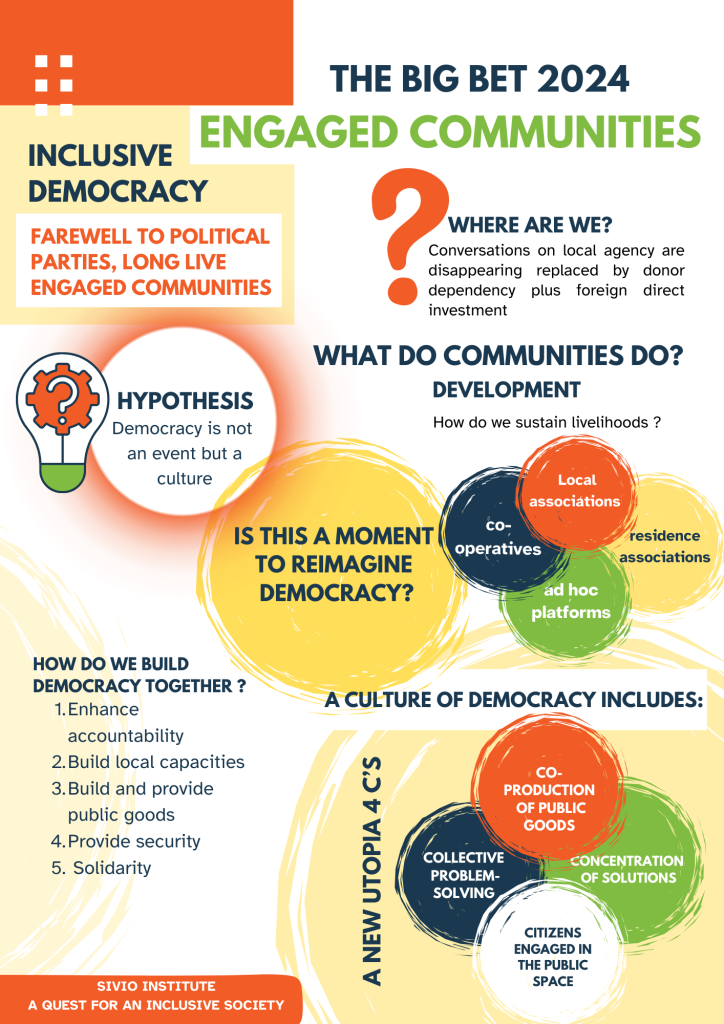Blog Article
The Big Bet
Published: Thursday, February 22, 2024
Read time: 7 mins
The Big Bet
Engaged Communities
The discussion on the assets within communities is slowly disappearing from Development discourse, thanks to a preoccupation with state behaviour. Our big bet this year is on engaged citizens working collectively in communities and establishing associations are vital conditions for democracy and inclusive development to thrive. We will spend time trying to unravel how local associations work and the ways in which they contribute towards, on the one hand, an inclusive development framework and on the other hand, how they contribute towards local democracy. We don’t do this just for the sake of analysis. Rather, we recognize that we are in a place and a time where we are challenged by the existing status quo or the existing equation that says democracy depends upon political parties or democracy depends upon electoral management bodies. We have reduced a very big idea (democracy) into an event called elections. The more we move into the elections rabbit hole there is a possibility that we will have free and fair elections which do not necessarily contribute to deepening democracy but rather a new elitocracy. When understood in its broader sense, democracy is about public problem-solving. This cannot just be done at the political party level or government level, but it’s done in different facets and arenas of life.
Some background. In 2018 we embarked on a journey of observing how governments (starting with Zimbabwe and then added Malawi and Zambia) perform vis a vis the promises they make to citizens during the electoral period. We closed the first phase of tracking the Zimbabwe government in 2023 and they scored an overall 58% which was considered too high by other’s expectations. We took a small sample of only three governments (Zimbabwe, Malawi, and Zambia) out of ten in SADC. On average the performance of the governments has been below expectations or rather they didn’t effectively turn around their electoral promises into policy actions. The countries remain ravaged by increasing poverty, deepening inequality, high levels of unemployment, and rising. What happens when government performance does not match the needs and expectations especially the intractable and wicked problems that societies are facing?
So, the question that we ask is, how are these countries surviving? How is it that we are not seeing a collapse in peace, civil order, or an increase in protests in those countries? Is it may be due to the fact that the countries under discussion have a police and military presence that serves to quell any forms of potential disobedience? Maybe. But what if we looked for a moment at how citizens in communities are cohering livelihoods? There’s something that we may not have paid adequate attention to, what are the things that communities do on their own? So, when we shift our focus, for a minute, away from governments and focus more on what communities are doing we learn quite a number of things. There are lessons about the invisible and visible networks of solidarity. There are several informal and formal ways of collective action and relationships that are established to respond to the challenges that people face.
The work carried out in our Centre for Philanthropy and Communities in the past five years has contributed towards an improved understanding of what citizens do with each other in their communities. We have followed up on how individuals and families within communities come together to establish various associational platforms such as residence associations (mostly in urban areas) and we’ve been fascinated with a new movement of solidarity-focused platforms which we have tagged as community foundations. But the more we look, we realize that citizens are engaged in many other associational platforms. The Figure below provides an overview of the multiple ways in which citizens within communities cooperate with each other.
Fig-1 Typology of Associational Platforms in a Typical Community

We are making a big bet on what we call associational community life. We think that communities are kept together by the structured and ad hoc associations within. These could be associations of five, seven, or ten households, or fifty households doing different things as per the figure above. A study that was done early in the 90s said that one out of every four Zimbabwean households belonged to an association. Our own CPE studies carried out annually from 2018 until 2023 have revealed a growth in associational belonging. These associations are responsible for pooling savings, productive assets, and financial resources in times of need. These are associations that help with the burial of loved ones. Some help with creating economic opportunities whilst others have spiritual needs.
For so many years, we have ignored what happens in communities, especially for those of us who are in development and political science, because our focus has mostly been on what governments do. So even the methods of tracking and analyzing these remain subsumed or remain underexplored in terms of methodologies, for mapping, deconstructing these realities and measuring their contribution towards economic, social, and spiritual wellbeing. Our big bet on associational communities, especially in our focus countries will lead towards intensive learning about communities in these three countries in 2024 given the fact that there will be no elections. In many instances, elections tend to overwhelm discussions on other important development subjects. We appreciate the role of political parties and elections as pathways towards possible big change within a country but what keeps communities going to achieve what may be referred to as marginal small changes focused on improving livelihoods, keeping children in school, making sure that the vulnerable are fed, creating income opportunities for others, and making sure that there is peace within communities.
We are interested in understanding and amplifying how communities come together to fix certain problems. And the extent to which that process of fixing problems aids in developing that democracy of accountability, that democracy of keeping those in the office in check.


